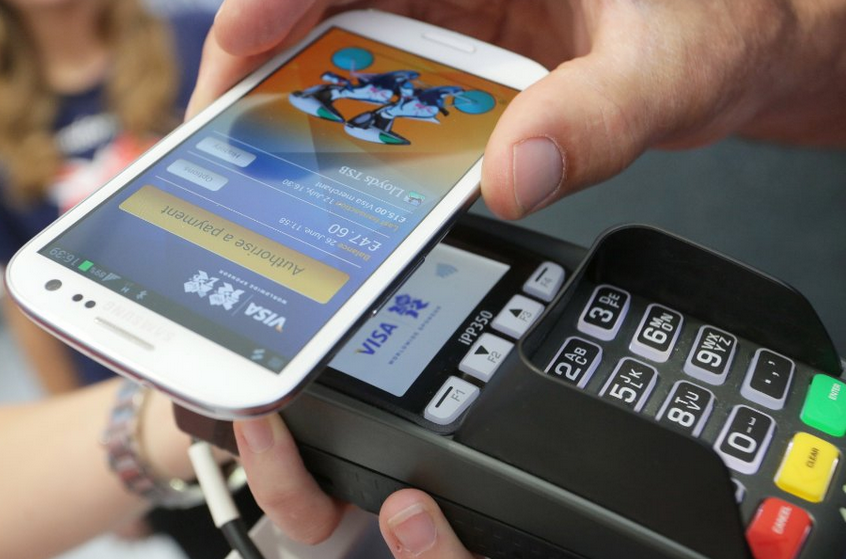What is the single indicator related to the online market opportunity in the United Arab Emirates and Saudi Arabia that beats all other developed and developing countries? Just take a look at people in coffee shops, malls, or even at family gatherings, you’ll notice immediately that everyone has a smartphone. To be specific, 74% of all mobile phones in the United Arab Emirates and Saudi Arabia are smartphone devices, beating South Korea, which comes in second place with a penetration rate of 73%. Other emerging online markets such as Russia and Brazil have smartphone penetration rates of only 36% and 26%, respectively.
The fierce competition between the GCC and South Korea in this regard becomes even more interesting when you know that the total population and GDP of the GCC are very similar to those of South Korea. The contrast, however, is that South Korea has produced mobile gaming and application companies that are worth billions of dollars, and is starting to spread the products of those companies worldwide. So what’s in it for local and regional online businesses in our region?

Embracing online users isn’t exclusive to smart websites, but has extended to include “smart governments,” writes Khaldoon Tabaza.
The proliferation of 3G and 4G networks, in addition to Wi-Fi networks in public places enabled successful online business with strong strategies to capture mobile users, wherever they are. For example, leading online food ordering business, Hellofood, receives almost 80% of its orders via mobile in Saudi Arabia. OpenSooq, an online classifieds business, gets approximately 50% of its traffic via its mobile site and its application, which was downloaded more than 2.5 million times in less than 6 months. A random look at some of the recent listings on OpenSooq show a user who captured a photo of a camel at the outskirts of Saudi Arabia with his smartphone, offering it for sale in a couple of clicks, and a landlord who took photos of his apartment in Kuwait, offering it for rent on the online platform. In fact, certain online business models are built almost exclusively for mobile applications, including mobile taxi hailing, mobile messaging, and mobile gaming.
Not only do smartphones offer users the freedom to perform online actions anywhere and anytime, they also offer specific capabilities that are not always available on desktops and laptops, including location-based services, operator billing (overcoming the challenges of online payments), and a much easier integration of voice, photos, and videos.
In many ways, smartphones have brought online services to a new category of users in the Middle East, who were not users of desktop computers of laptops. In fact users in some countries, such as Iraq where the mobile infrastructure has leapfrogged the fixed lines infrastructure, were first introduced to the Internet through their mobile phones, not desktops.
Even in more mature online markets, new users including teenagers and elderly people view smartphones and connected smart devices as their primary online device, contrary to the traditional view that mobile is just an ancillary channel in users’ eyes. In a couple of years -if not earlier- we should not be surprised if smart devices become the primary online channel for all users.
However, embracing online users isn’t exclusive to smart websites, but has extended to include “smart governments”. Here it’s important to mention the UAE’s e-government program, which is quickly making the UAE the first country in the world to extend almost all government services to smartphone devices in record time.
The most notable sector that is lagging behind in optimizing and focusing on mobile strategies in the region is traditional media, because while online versions of traditional media are available, mobile presence is poor. We have yet to see a powerful second-screen application that leverages the power of smartphones for leading TV or radio stations and advertisers have not yet explored the powerful benefits of being able to interact with users who watch their TV or hear their radio advertisements while holding their smart devices. Additionally, print media that produced mediocre web versions have not invested beyond producing simple mobile sites and applications, while mobile screen advertising is yet to be fully leveraged to reap meaningful returns to advertisers.
The old saying in the online industry that “mobile is the future, and it will always be,” has finally become outdated, with the future being here today. It happened overnight, taking many media and commerce operators by surprise, and there is no turning back.
*Khaldoon Tabaza is the founder and Managing Director of iMENA Group, which includes nine online businesses in the Middle East and North Africa.









